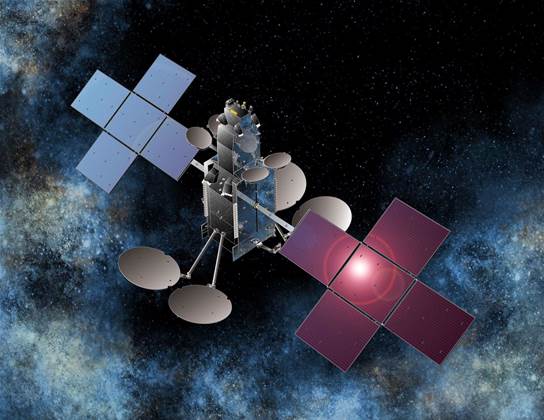The primary satellite operator behind the National Broadband Network interim satellite service has begun heavily marketing retail plans for rural residents on the network for the first time.

IPSTAR, which provides satellite capacity to the NBN, has revealed retail plans ranging from $51.95 a month for 10 GB total data quota, to a $97.95 per month “moonlight plan” with 75 GB of quota split over a peak period during the day and off-peak period at night.
The company’s plans appear to be similar in pricing at the low end of the scale to the plans it already offers satellite users under the Federal Government’s Australian Broadband Guarantee subsidy program.
However, those plans peaked at 40 GB quota for $247.95 a month. The service also offered a maximum downstream speed of 4 Mbps to 80 percent of IPSTAR’s customer base.
By contrast, the interim NBN service offers speeds of around 6 Mbps downstream and 1 Mbps, operated under a $200 million stop-gap arrangement with IPSTAR and Optus until NBN Co launches two of its own satellites in 2015.
A total of nine retail service providers have begun offering the interim NBN products to some 3500 end-users, with more residents taking it up based on eligibility.
The most recent entrant, iiNet, yesterday announced plans to offer a 20 GB satellite service for $49.95 a month.
The single-plan offer - with a $10 a month discount when bundled with a phone service - is seen as an experiment from the company, which is entering the NBN satellite space for the first time.
It already has 9000 satellite customers on the older ABG satellite service under regional brand Westnet.
“We put something in the marketplace that we think is a reasonable price,” iiNet chief regulatory officer Stephen Dalby said.
“There’s always a possibility that we’ll revise our plans depending on how they go in the market place. That’s keeping it simple to start with - that price is just a normal approach we take with cost inputs.”
Pricing differential
iiNet’s NBN satellite plan, which undercuts several competitors, is quietly seen in the industry as a “game changer”.
But, as with most current satellite plans, iiNet’s offering comes at a premium on equivalent fibre offerings, despite a mandate for NBN Co to provide a consistent wholesale price for the basic, 12/1 Mbps service across all three aspects of the national network.
An NBN Co spokeswoman confirmed access seekers paid the same $24 a month wholesale price for the 6 Mbps satellite service as they do for a 12 Mbps fibre or fixed wireless service, along with any connectivity virtual charges required to deliver traffic to the end-user.
However, she told iTnews that NBN Co’s fair use policy required interim satellite service providers to provide a maximum of 9.7 gigabytes of data downloads and 3.2 gigabytes of data uploads on average per user, per month.
Despite more expensive products offering significantly more data quota, service providers are required to ensure they maintain the average data use across the user base.
“Satellite capacity is currently limited, meaning that retail service providers need to manage the download limits available to customers via the pricing plans they offer,” the spokeswoman said.
“We expect these capacity constrains to be eased with the launch of the Long Term Satellite.”
Dalby said the usage quotas had played a factor in iiNet's pricing plan.
"The fact is that with our many thousands of existing [non-NBN] satellite customers, the usage averages out well below the fair use requirements, but we never know which customers want 0.5 GB or 50 GB," he said.
"We'll keep an eye on them and see if any variation is required to meet market requirements."
Support costs
According to Paul Rees, managing director of one of the first satellite service providers Skymesh, even NBN Co’s service requires “a huge amount” of support costs for satellite customers compared to fibre subscribers.
“[With fibre], you get a technician to install and you never hear from them again... there’s no peak hour, there’s no issue, they never ever get a problem,” he told iTnews.
“On the other hand, normal satellite services - not NBN Co - have enormous amounts of problems. We’ve got an inordinate amount of support staff to handle the satellite customers that we’ve got.”
Rees said that while NBN interim satellite service is much more reliable than IPSTAR’s previous offering, connectivity issues and potential disruptions to the Broken Hill and Kalgoorlie base stations used to deliver the NBN service remained a relatively high support issue for Skymesh’s 2000-odd customers on the network.
It is expected NBN Co could build 15 or 20 earth stations under its long-term satellite plan, which would reduce the number of customers affected by an outage at any one earth station.
The earth station is currently being negotiated with rivals Hughes and ViaSat.
Update 2.50pm: Added further comment from Stephen Dalby.


_(20).jpg&h=140&w=231&c=1&s=0)
_(23).jpg&h=140&w=231&c=1&s=0)
_(33).jpg&h=140&w=231&c=1&s=0)






 iTnews Executive Retreat - Security Leaders Edition
iTnews Executive Retreat - Security Leaders Edition
 iTnews Benchmark Awards 2026
iTnews Benchmark Awards 2026
 iTnews Cloud Covered Breakfast Summit
iTnews Cloud Covered Breakfast Summit
 The 2026 iAwards
The 2026 iAwards











_(1).jpg&h=140&w=231&c=1&s=0)



